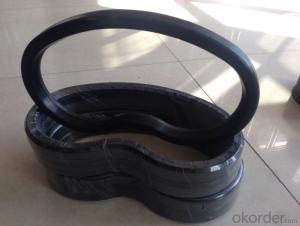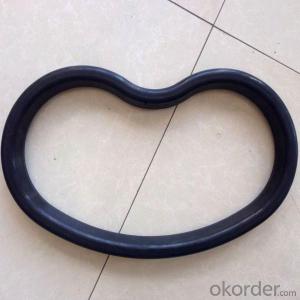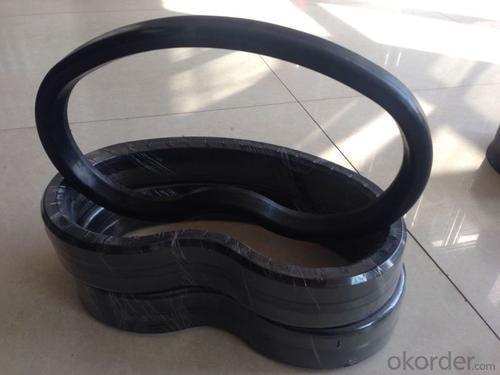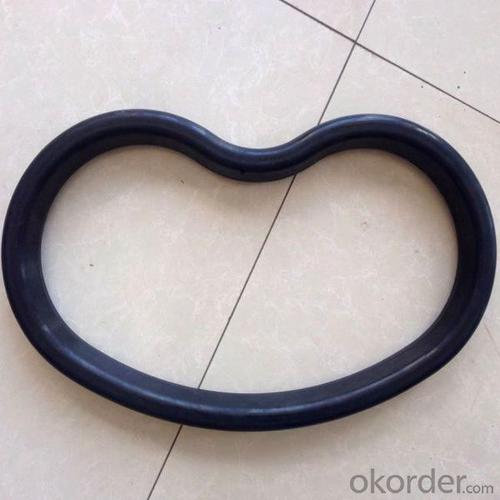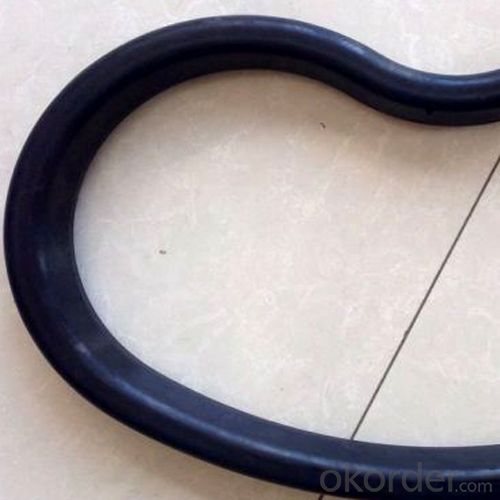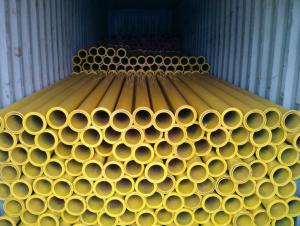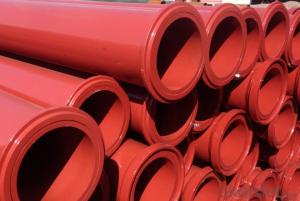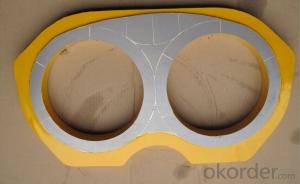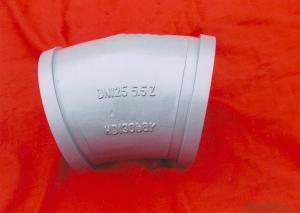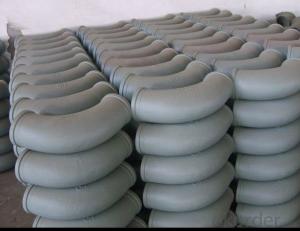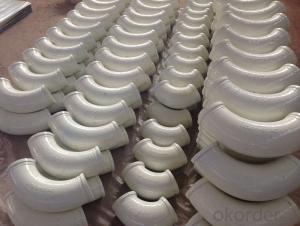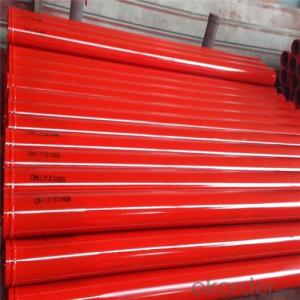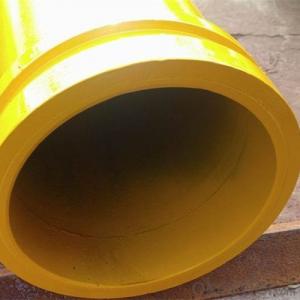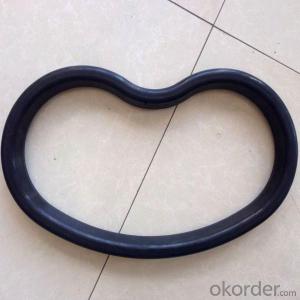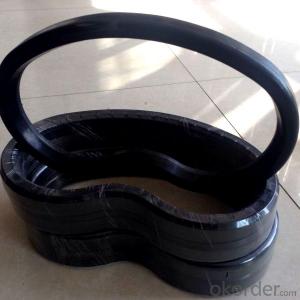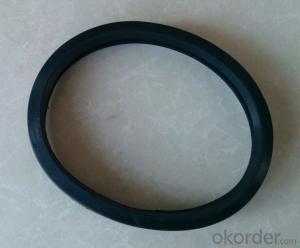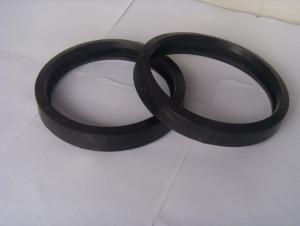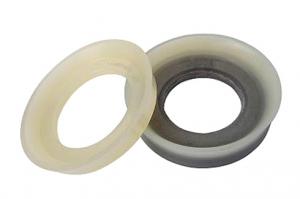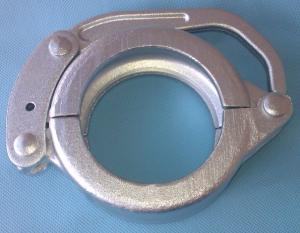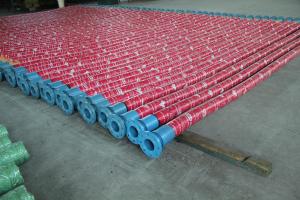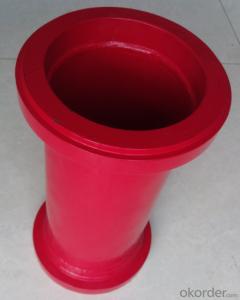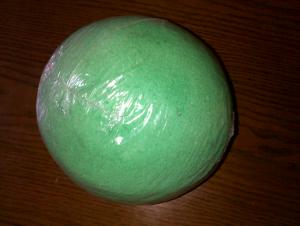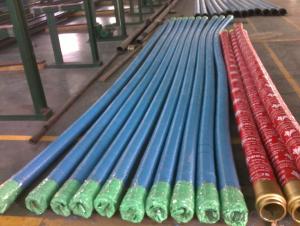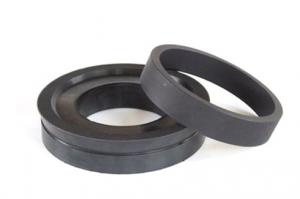Concrete Pumps Spare Parts Kidney Seal DN 135
- Loading Port:
- Tianjin
- Payment Terms:
- TT OR LC
- Min Order Qty:
- 10 pc
- Supply Capability:
- 1000 pc/month
OKorder Service Pledge
OKorder Financial Service
You Might Also Like
Product Description:
The Concrete Pumps Spare Parts Kidney Seal DN 135 normally made by special rubber materials, NR rubber and other rubbers to make sure the quanlity of seals according to customer’s requests, and also package in plywood box or cartons and put into container.
Scope of Application of the Goods
The Concrete Pumps Spare Parts Kidney Seal DN 135 is a concrete pumps parts for combined use with other concrete parts in for concrete pumps and truck pumps. It can be widely used in the construction of various types of concrete structures like industrial and civil buildings, bridges, roads, and other types of infrastructure.
This seals can only be used in Schwing type concrete pumps and truck pumps as well, but not in any other operations.
Product Advantages:
OKorder's Concrete Pumps Spare Parts Kidney Seal DN 135 Channels are durable, strong, and safety.
Main Product Features:
· Premium quality
· Prompt delivery & seaworthy packing (5-10 days)
Reliable performance
Easy to weld
High safety.
· Professional Service
· Competitive pricing
Measuring of wall thickness from the outside
Low purchase cost
Specifications:
CNBM No. | 3000031 |
Original No. | 10140087 |
Description | Kidney Seal DN 135 |
Remark |
FAQ:
Q1: How long about delivery time Concrete Pumps Spare Parts Kidney Seal DN 135 ?
A1: Normally we keep the raw materials for old customers and sometime we also keep stock products to make sure delivery time in any emergency cases.
Q2: How do we guarantee the quality of our Concrete Pumps Spare Parts Kidney Seal DN 135 ?
A2: We have established an advanced quality management system which conducts strict quality tests at every step, from raw materials to the final product. At the same time, we provide extensive follow-up service assurances as required.
Q3: How soon can we receive the product after purchase?
A3: Within three days of placing an order, we will book the vessel for goods. The specific shipping date is dependent upon international and government factors, but is typically 7 to 30 workdays.
Q4: If we can produce some goods according to customers request?
A4: Yes, we can produce Kidney Seal DN 135 according to the difference country situations to make it suitable to the market and customers. We have very professional technical team to make the design for porduction of seals.
Q5: How to make a quick resolution for after service?
A5: OKorder and our manufacture both have overseas branches all-around of world.
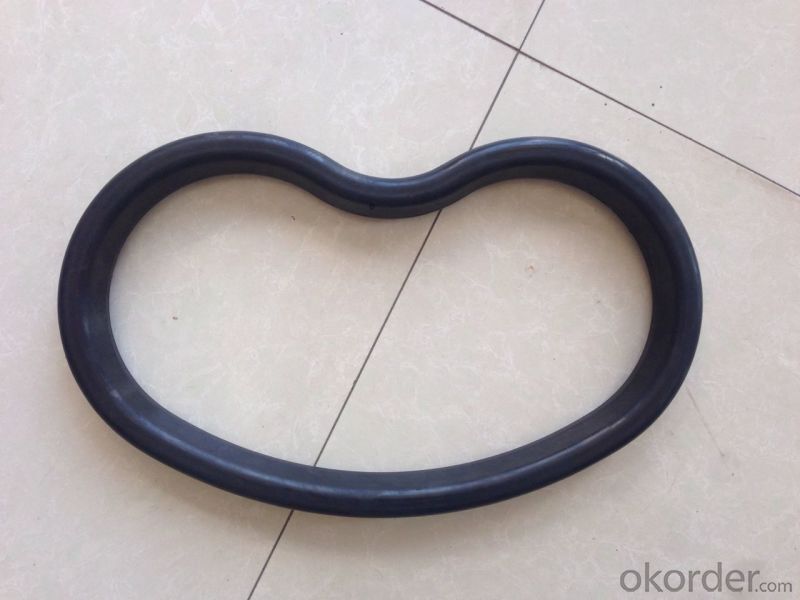
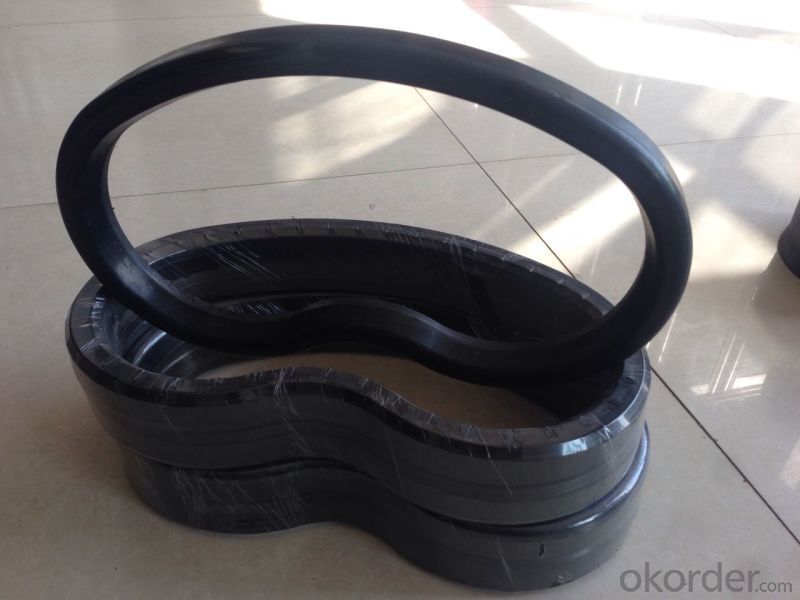
- Q: Are there any maintenance tips to extend the lifespan of concrete pump spare parts?
- Yes, there are several maintenance tips to extend the lifespan of concrete pump spare parts. Regular cleaning and lubrication of the parts, proper storage to prevent corrosion, and routine inspection for wear and tear are essential. Additionally, using high-quality spare parts and following manufacturer's guidelines for maintenance and operation can significantly increase their longevity.
- Q: What is the purpose of a concrete pump electric motor?
- The purpose of a concrete pump electric motor is to provide the necessary power and torque to pump concrete from one location to another, eliminating the need for manual labor and increasing efficiency in construction projects.
- Q: Are there any specific tools required for replacing concrete pump spare parts?
- There exist certain tools that are essential for the replacement of concrete pump spare parts. Among the frequently used tools are wrenches, socket sets, screwdrivers, pliers, hammers, and pry bars. Furthermore, specific tools like concrete pump piston pullers, gasket cutters, and sealant applicators may be required depending on the particular parts being replaced. To guarantee a secure and effective replacement of concrete pump spare parts, it is crucial to possess the appropriate tools.
- Q: How to deal with the blockage in the outlet of the distributing valve of the concrete pump?
- Pour the grout into the hopper, turn the pump in and out again and again, forcing the passage to open
- Q: How often should hopper agitator shaft bearings be inspected or replaced in a concrete pump?
- The frequency of inspecting or replacing hopper agitator shaft bearings in a concrete pump can depend on various factors such as the manufacturer's recommendations, the operating conditions, and the maintenance history of the pump. However, as a general guideline, it is recommended to inspect these bearings at least once a year or every 500-1000 hours of operation, whichever comes first. Regular inspections should include checking for any signs of wear, damage, or excessive play in the bearings. If any abnormalities are detected during the inspection, immediate action should be taken to address the issue. In some cases, lubrication or adjustment may be sufficient to resolve minor problems, while more severe damage or wear may require the replacement of the bearings. It is important to note that the hopper agitator shaft bearings play a crucial role in the smooth and efficient operation of the concrete pump. Neglecting regular inspections or delaying necessary replacements can lead to increased downtime, reduced productivity, and potential safety hazards. Therefore, it is recommended to follow the manufacturer's guidelines and consult with experienced technicians or specialists for a more accurate assessment of the inspection and replacement intervals specific to your concrete pump.
- Q: What are the different types of concrete pump hydraulic filters?
- Construction projects commonly utilize various types of concrete pump hydraulic filters. These filters are crucial for ensuring the hydraulic system's smooth operation and longevity. 1. Suction filters, located at the hydraulic pump's intake side, play a vital role in removing larger particles and debris from the hydraulic oil. They prevent contaminants from entering the pump and causing harm to its components. 2. Positioned on the return line, return line filters are designed to eliminate smaller particles and contaminants from the hydraulic oil before it is returned to the reservoir. By maintaining oil cleanliness, they prevent system wear and tear. 3. Pressure line filters, typically installed after the hydraulic pump on the high-pressure side, remove fine particles and contaminants from the oil. Their purpose is to guarantee the valves, cylinders, and other hydraulic components work smoothly. 4. In-tank filters are submerged in the hydraulic oil reservoir to filter the oil as it circulates through the tank. They effectively eliminate larger particles and contaminants settled at the bottom of the reservoir. 5. Magnetic filters attract and remove metallic particles, such as iron filings and metal shavings, from the hydraulic oil. They are highly effective in capturing ferrous contaminants. 6. Breather filters, installed on the breather vent of the hydraulic oil reservoir, maintain the cleanliness and integrity of the hydraulic oil by preventing dust, dirt, and moisture from entering the system. Regular inspection and replacement of these hydraulic filters are crucial for optimal performance and longevity of the concrete pump's hydraulic system. Neglecting this maintenance can lead to increased wear and tear, decreased efficiency, and potential damage to the pump and its components.
- Q: What are the signs of a faulty concrete pump control box?
- Signs of a faulty concrete pump control box can vary depending on the specific issue. However, there are some common indicators to look out for: 1. Unresponsive controls: When the controls fail to function properly or become unresponsive, such as buttons not working or switches not engaging, it is a clear sign of a faulty control box. 2. Inaccurate readings: If the readings or measurements displayed on the control panel are inconsistent or incorrect, such as pressure readings or flow rates, it suggests a faulty control box. 3. Electrical problems: Faulty control boxes can cause electrical issues like flickering lights, sudden power surges or shortages, and blown fuses. These electrical problems can be dangerous and potentially cause further damage. 4. Strange noises: A faulty control box may produce unusual noises like buzzing, humming, or clicking sounds. These noises indicate loose connections, damaged components, or malfunctioning parts within the control box. 5. Pump malfunctions: The concrete pump itself can experience malfunctions due to a faulty control box. This can include inconsistent pumping, irregular flow, or sudden stops and starts, which can disrupt the concrete pouring process and lead to project delays. If you suspect a faulty concrete pump control box, it is crucial to address the issue promptly. It is recommended to seek assistance from a qualified technician or contact the manufacturer for help in diagnosing and repairing the control box.
- Q: What is the function of a concrete pump hopper grate handle?
- The function of a concrete pump hopper grate handle is to provide a means for operators to easily lift and remove the grate from the hopper, allowing for inspection, maintenance, or cleaning of the pump's interior.
- Q: How do I troubleshoot common problems with concrete pump spare parts?
- To troubleshoot common issues with concrete pump spare parts, it is important to approach the task systematically. Here are a few steps that can assist you in identifying and resolving problems: 1. Start by observing the symptoms and pinpointing the specific problem you are facing. These may include leaks, reduced pumping efficiency, abnormal noise, or power failure. 2. Examine the pump's hoses, pipes, and valves for any clogs or blockages that may impede the flow of concrete. Remove any debris or obstructions you come across. 3. Inspect the wear parts, such as the pump's pistons, seals, or gaskets, for signs of wear and tear, cracks, or damage. Replace any worn-out components when necessary. 4. Check for any air leaks that may affect the pump's performance. Inspect the fittings, connections, and seals for signs of air leakage. Tighten loose fittings or replace faulty seals as required. 5. Ensure that the lubrication system is functioning properly. Lack of lubrication can cause friction and damage to the pump's moving parts. Add lubricant if needed. 6. Verify the electrical connections if you encounter power failure or electrical problems. Look for loose or damaged wires and connections. Repair or replace any faulty components. 7. Consult the manufacturer's manual for valuable troubleshooting information specific to your concrete pump spare parts. Refer to the manual to understand the recommended maintenance procedures and troubleshooting steps. 8. If you are unable to identify or resolve the issue on your own, it is advisable to seek professional assistance. Contact a qualified technician or the manufacturer's customer support for further guidance and support. Always remember that regular maintenance and proper usage of concrete pump spare parts can help minimize the occurrence of problems.
- Q: How do I ensure the reliability of concrete pump spare parts in critical applications?
- To ensure the reliability of concrete pump spare parts in critical applications, there are several steps you can take: 1. Choose a reputable supplier: Research and select a trusted supplier known for providing high-quality concrete pump spare parts. Look for suppliers with a strong track record, positive customer reviews, and certifications that demonstrate their commitment to quality and reliability. 2. Verify product specifications and certifications: Before purchasing any spare parts, carefully review the product specifications and certifications. Ensure that the parts meet the required standards and have undergone rigorous testing to guarantee their reliability in critical applications. 3. Conduct regular maintenance and inspections: Implement a comprehensive maintenance and inspection schedule for your concrete pump and its spare parts. Regularly check for signs of wear, damage, or malfunction. Replace any parts that show signs of deterioration or that no longer meet the required specifications. 4. Use genuine spare parts: Always opt for genuine spare parts that are specifically designed for your concrete pump model. Genuine parts are manufactured to the highest standards and are more likely to provide reliable performance in critical applications compared to generic or counterfeit alternatives. 5. Keep an inventory of critical spare parts: Identify the most critical spare parts that are prone to failure or wear and keep an inventory of these parts on hand. This will minimize downtime in case of unexpected failures and ensure that you can quickly replace any faulty components. 6. Train and educate operators: Provide thorough training to your concrete pump operators on proper handling and maintenance of spare parts. Educate them on the importance of following manufacturer guidelines and best practices to maximize the reliability and longevity of the equipment. 7. Prioritize safety: Safety should always be a top priority in critical applications. Ensure that the spare parts you use are compliant with safety regulations and standards. Regularly assess and update safety protocols to minimize the risk of accidents or equipment failure. By following these steps, you can enhance the reliability of concrete pump spare parts in critical applications, reducing the likelihood of downtime and ensuring the smooth operation of your equipment.
Send your message to us
Concrete Pumps Spare Parts Kidney Seal DN 135
- Loading Port:
- Tianjin
- Payment Terms:
- TT OR LC
- Min Order Qty:
- 10 pc
- Supply Capability:
- 1000 pc/month
OKorder Service Pledge
OKorder Financial Service
Similar products
Hot products
Hot Searches
Related keywords
